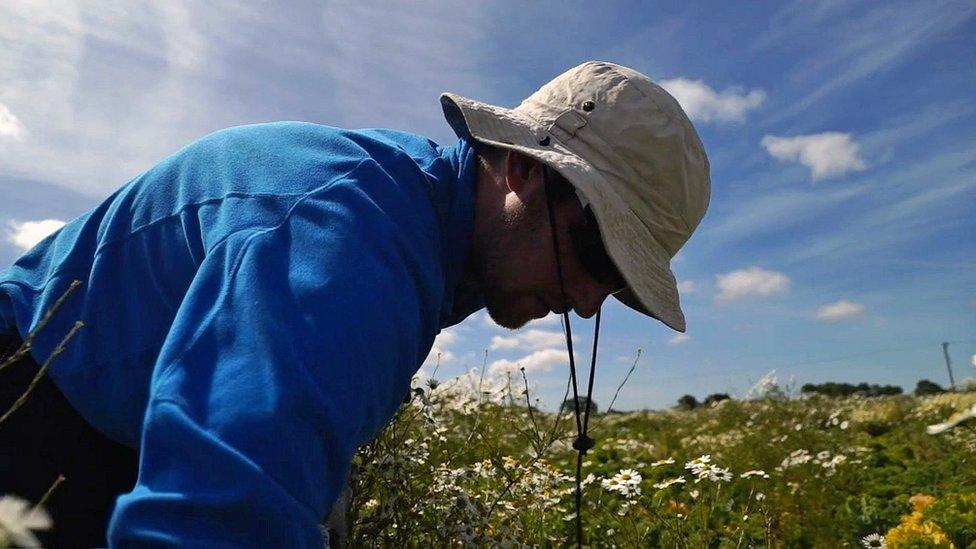Gleaning - Picking leftover crops for the food bank
- Published
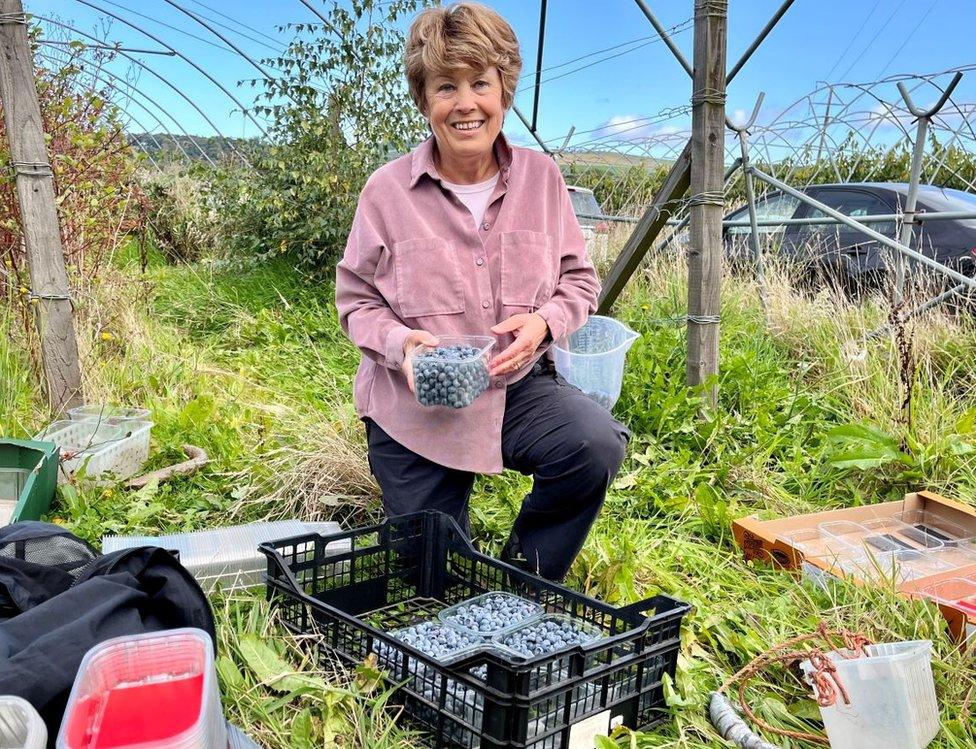
Lorraine Malone usually helps out at the Dundee community fridge
Gleaning is the ancient practice of gathering up leftover crops after harvest but it is being revived to meet very 21st Century needs.
In a field in Perthshire, volunteers are picking blueberries which the farmer says are not economically profitable to harvest and donating them to food banks.
Lorraine Malone usually helps out at the Dundee community fridge, which offers food free to people who are struggling.
She normally collects goods from supermarket to stock the food bank but today she is carefully picking blueberries from branches heavily laden with fruit in a field in Blairgowrie.
"It's hugely different but at the same time it is for the same purpose," she says.
"You're achieving the same goal. You know that what you're doing is helping."
This blueberry harvest is part of the first ever official "gleaning" project in Scotland.
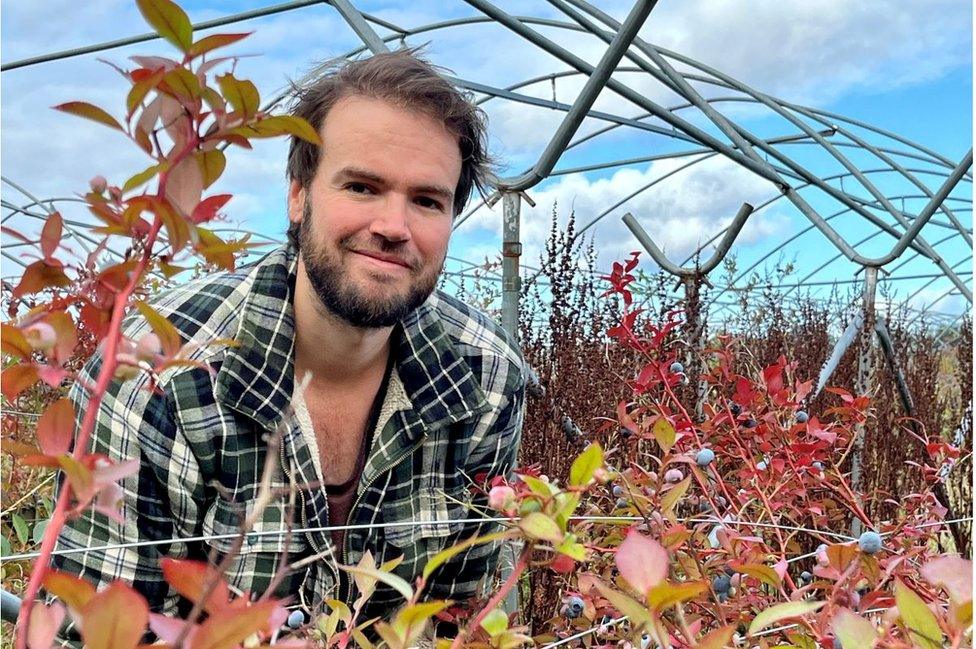
Alex Daniels says Gleaning has been going on for thousands of years
Alex Daniels, who coordinates the project in Dundee, says: "Gleaning has been going on for thousands of years, ever since agriculture started really.
"People who lived locally to growers would walk up and down the fields post-harvest and collect whatever had been left behind, or what was considered not good enough quality or not the right size.
"It is an old idea that has come again. It still goes on informally but we've formalised the process a bit."
Mr Daniels says it is about saving the food from waste as well as getting more nutritious food into communities that need it most.
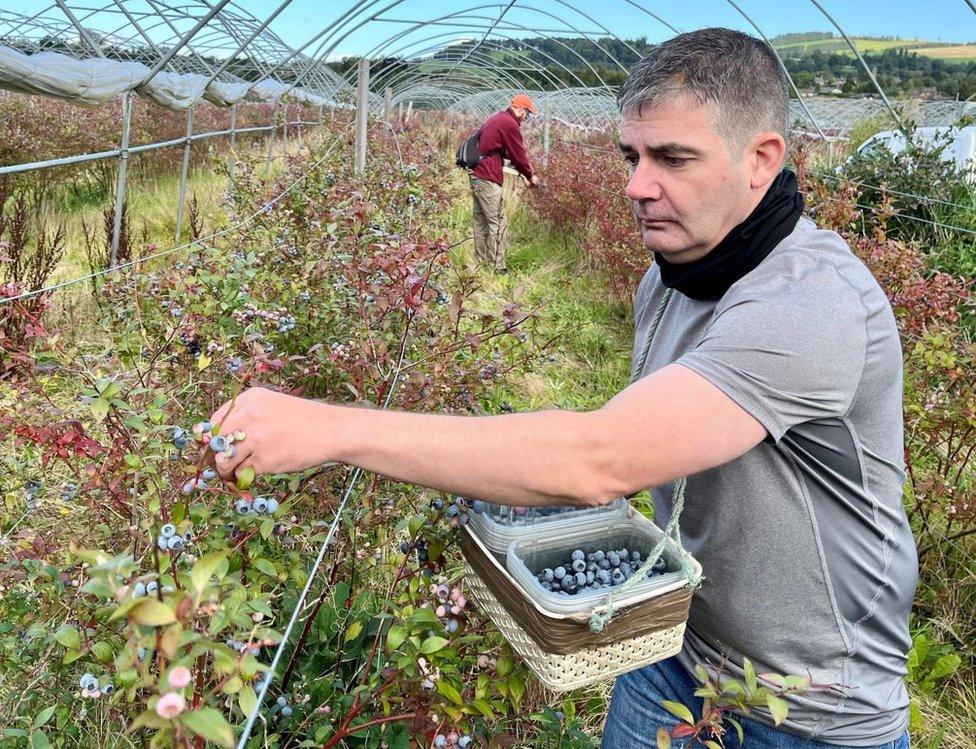
Craig Day says it is unusual to get produce straight off the bush
Craig Day usually helps out at the food bank in Dundee, making up parcels and handing them out.
Today, along with other volunteers from local food banks, he is picking fruit.
As he walks up and down the rows in the autumn sunshine, he says the fruit they are picking will be getting distributed the next day to people who are in real need of it.
"It's unusual to get produce straight off the bush and so we are certainly going to make the most of it today and pick as much as we can and get it distributed around Dundee."
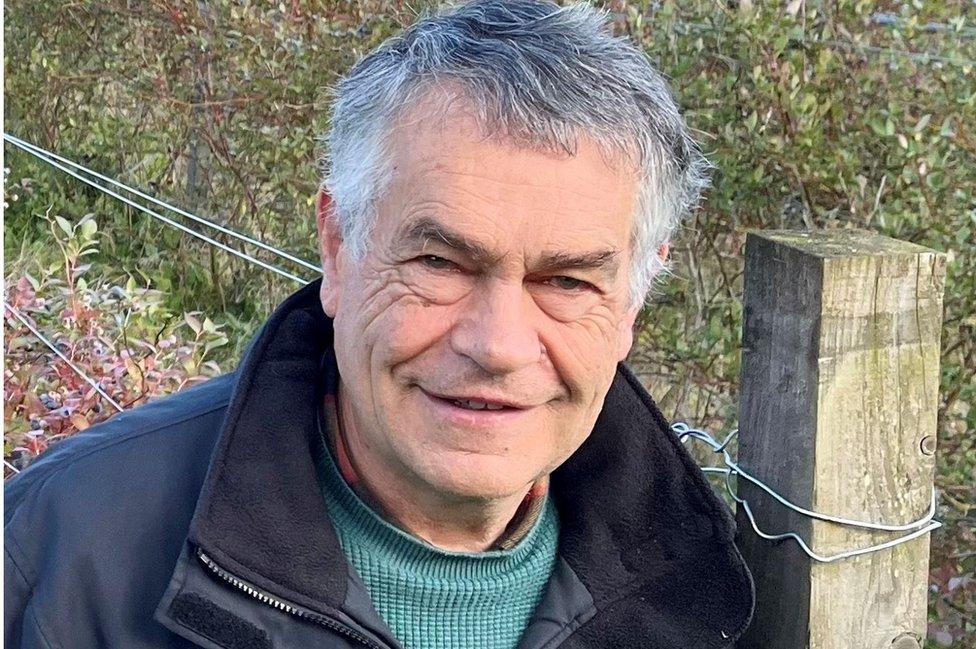
Peter Thomson says it is not economically viable for him to harvest the fruit
Peter Thomson watches all the activity. He has 60 acres of blueberry bushes on his farm. He's allowing groups in to harvest the fruit because it's not economically viable for him to do it.
He says: "It's happening because we cannot sell to the supermarkets.
"If we were doing that, we would be losing a lot of money so we had to take the hard decision to stop picking the fruit for them.
"We thought it was much better that some local projects and local charities could get the blueberries rather than it all going to waste."
Scottish blueberries have traditionally commanded a high price as they were ripe at a time of year when those produced in other countries were not ready for harvesting.
New varieties are now grown in places such as Peru and South Africa, meaning that advantage has been lost.
Normally 200 full-time workers would have picked hundreds of tonnes of blueberries this year.
But Mr Thomson, whose team have been operating for 30 years, said the cost of growing, picking, packing and transporting the blueberries to the supermarket made that unviable.
So local charities are stepping in to pick as much fruit as they can before it goes off.
Mr Daniels hopes the Gleaning Project can harvest leftover potatoes and broccoli next.
Related topics
- Published27 October 2022
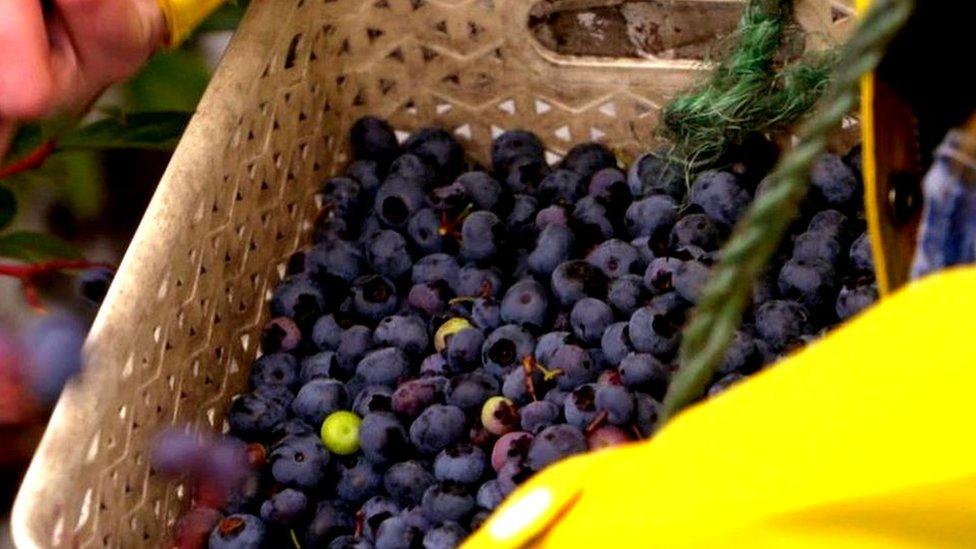
- Published25 July 2019
